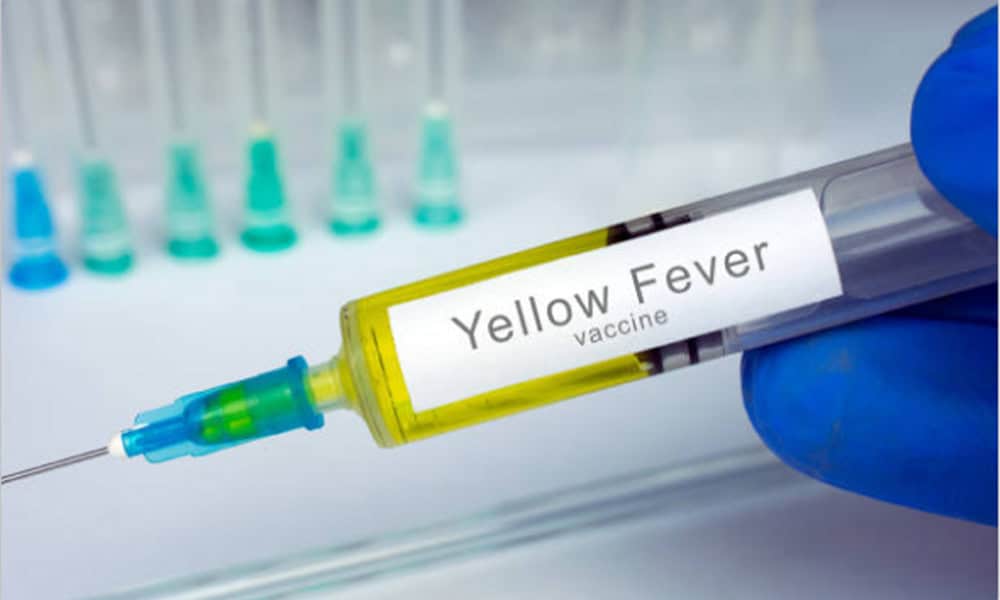Costa Rica is intensifying its defenses against yellow fever as cases surge across Latin America, prompting heightened vigilance from national health authorities. The Pan American Health Organization (PAHO) reported 14 confirmed cases in the Americas in early 2025, following 61 cases in 2024, with the disease spreading to urban areas like São Paulo, Brazil, and Tolima, Colombia. While Costa Rica has no local cases, its role as a Central American travel hub keeps it on high alert.
The Costa Rican Ministry of Health has reinforced its preventive strategy, focusing on enhanced epidemiological surveillance, timely clinical management, and a targeted vaccination campaign in border areas where travelers from high-risk countries converge. According to the Chamber of Health, the private health sector has imported 34,000 doses of the yellow fever vaccine, available starting today. The Ministry also maintains a strategic reserve of 15,000 doses for potential outbreaks or shortages.
To streamline access, Costa Rica launched a digital yellow fever vaccination certificate in March. Travelers can digitize paper certificates at local Health Governing Areas, downloading them as a PDF or QR code with a certified digital signature. “This digital card ensures no lost paperwork and faster verification,” said Dr. Mary Munive Angermüller, Minister of Health. The certificate is valid for international travel and official procedures.
The World Health Organization (WHO) and PAHO have urged countries in the Americas to strengthen prevention, surveillance, and outbreak response, particularly in high-risk nations like Brazil, Colombia, Peru, and Venezuela. Recent posts on X highlight regional urgency, with Colombia declaring a sanitary emergency and activating a national vaccination plan in April.
What is Yellow Fever?
Yellow fever is a viral disease transmitted by infected Aedes or Haemagogus mosquitoes, primarily in tropical regions. The Centers for Disease Control and Prevention (CDC) notes that symptoms range from mild (fever, chills, headache, nausea, body aches) to severe, with serious cases potentially leading to liver damage, bleeding, and organ failure. Most infections are asymptomatic or mild, but severe cases require hospitalization for supportive care, as no specific antiviral treatment exists. The fatality rate for severe cases can reach 20–50%.
Vaccination and Travel Requirements
Vaccination remains the most effective prevention tool, with a single dose of the yellow fever vaccine (e.g., YF-VAX, Stamaril) providing lifelong immunity within 10 days for 80–100% of recipients. However, the vaccine is contraindicated for individuals with severe egg allergies, immunosuppression, or those under 9 months old. Travelers should consult healthcare providers to assess risks.
Since January, Costa Rica has enforced mandatory proof of yellow fever vaccination for travelers arriving from high-risk countries, including Bolivia, Brazil, Colombia, Venezuela, and parts of Africa, under International Health Regulations. Travelers without a valid International Certificate of Vaccination or Prophylaxis (ICVP) may be denied entry. The CDC recommends vaccination at least 10 days before travel to endemic areas.
Prevention Beyond Vaccination
While Costa Rica is not endemic for yellow fever, authorities emphasize mosquito bite prevention to reduce risks from imported cases. The CDC and WHO recommend using repellents with 20% DEET, wearing long sleeves and pants, and staying in air-conditioned or screened rooms. Vector control, such as eliminating mosquito breeding sites, is also critical to prevent urban outbreaks driven by Aedes aegypti mosquitoes.
As yellow fever edges closer to urban centers in neighboring countries, Costa Rica’s proactive measures—vaccination campaigns, digital certificates, and stricter travel rules—aim to keep the virus at bay. Travelers are urged to verify vaccination status and follow prevention guidelines to ensure safe travel.






